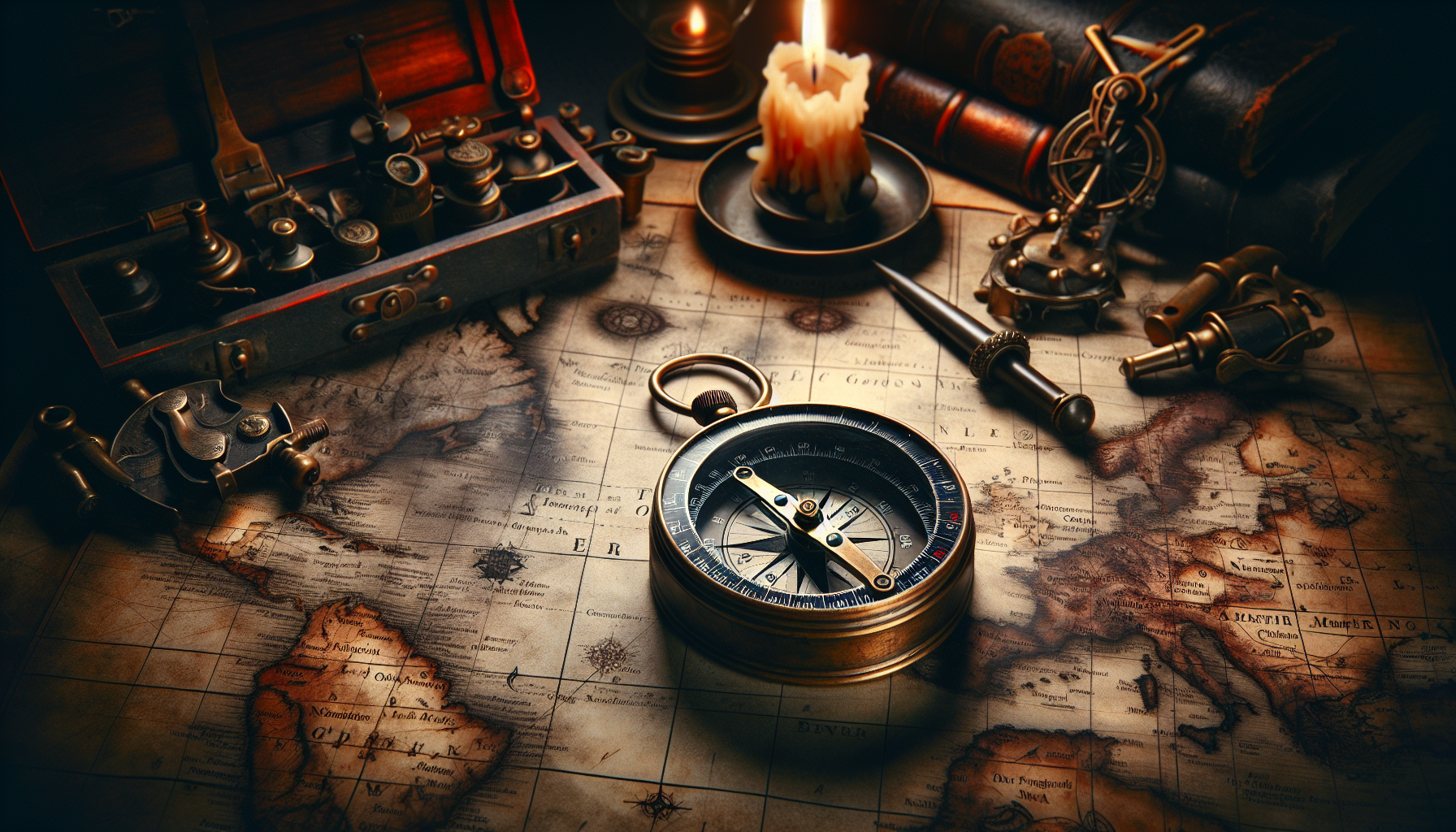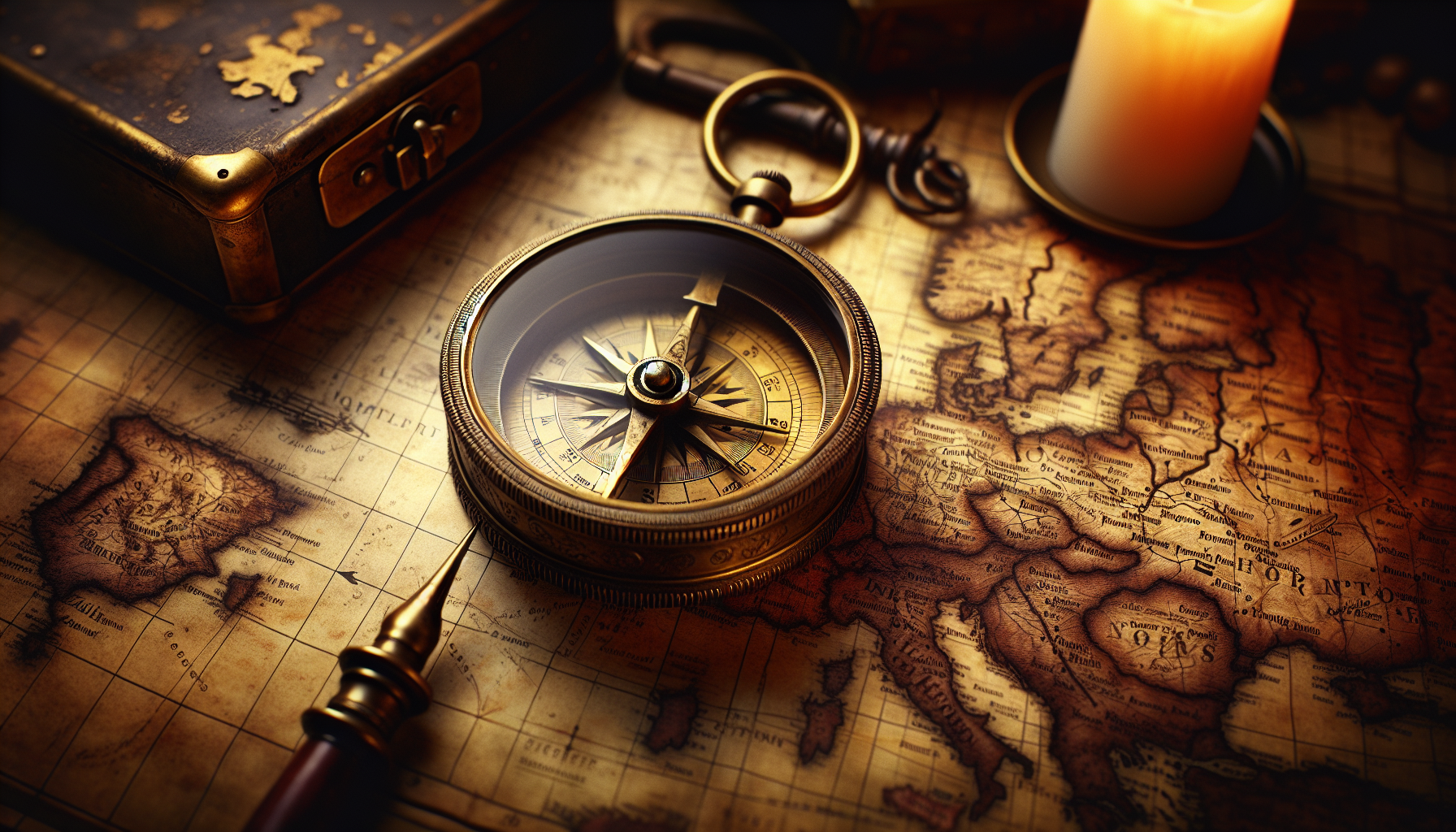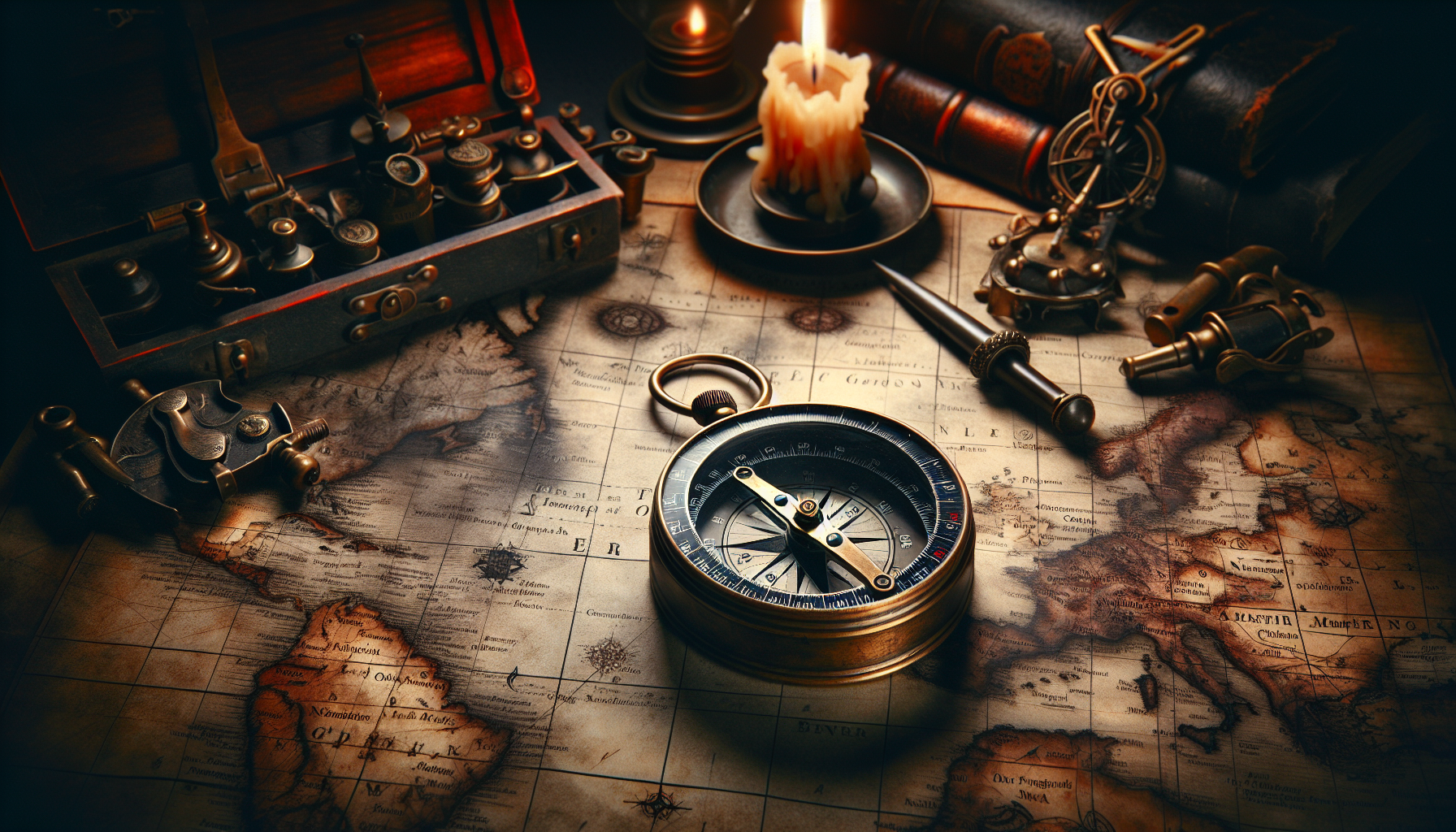The narrative surrounding Louis Desaix reveals a pivotal figure in military history, whose actions profoundly influenced the trajectory of Napoleon Bonaparte’s career. His bravery and strategic acumen during critical moments not only showcased his individual valor but also played a crucial role in determining the outcomes of battles that could have altered the course of history. This article examines how Desaix’s contributions enabled Napoleon to ascend to power amidst a backdrop of intense conflict.
By analyzing the interplay between Desaix’s impactful decisions and Napoleon’s rise, you gain insight into the complexities of leadership and loyalty in times of war. The examination focuses on key events that illustrate how Desaix’s military prowess and steadfast support helped to secure Napoleon’s position, ultimately shaping his future endeavors. Understanding this dynamic relationship enriches your appreciation of both historical figures and the broader context of their times.

The Context of Napoleon’s Early Career
The genesis of Napoleon Bonaparte’s illustrious career cannot be decoupled from the social and political upheaval of Revolutionary France. Born in 1769, he emerged amid the radical sociopolitical transformations that reshaped France and, eventually, the world. As political factions vied for dominance, France was not merely a backdrop but a character in its own right, dictating the terms of engagement within which young officers like Napoleon would navigate their ambitions.
Napoleon’s Rise in the Military
You may understand that Napoleon’s ascension in the military was a product of both circumstance and personal agency. Enlisting at the age of 16, he quickly made his mark as an artillery officer, deploying innovative strategies that distinguished him among his peers. The chaotic landscape created by Revolutionary sentiments allowed him opportunities for leadership and responsibility that would have been unattainable in a more stable environment. The brilliance of his operational tactics during the Siege of Toulon in 1793 solidified his reputation and propelled him into higher ranks, marking the beginning of a meteoric rise.
Challenges Faced in the Initial Years
However, the path to military distinction was not devoid of challenges. The turbulence of Revolutionary France meant that military leaders often faced ideological shifts, purges, and allegations of treason. You might note that the political ambitions of rival generals and the ever-changing loyalties within the army forced Napoleon to cultivate a keen sense of survival. In a climate rife with factionalism, he learned to navigate alliances carefully, drawing on his intelligence and charisma to secure both loyalty and operational success.
The Political Landscape of Revolutionary France
The political landscape surrounding these military endeavors was fraught with volatility. The fall of the monarchy in 1789 gave rise to a series of governments, each with its own aims and ideologies. As you evaluate the implications of this environment, it’s important to recognize how the fervor of revolutionary ideals impacted military organization. The army became a microcosm of the wider revolutionary movement, and individuals’ successes often became intertwined with the broader fortunes of the state. For Napoleon, this tumultuous backdrop was instrumental in forging his strategies and in positioning himself within an emergent hierarchy that enabled his ultimate aspirations.
Introduction to Louis Desaix
In understanding the impact Louis Desaix had on the French military landscape, you must first appreciate his unique background and upbringing. His early life significantly influenced his later professional endeavors, setting the stage for formidable contributions to French military history.
Background and Early Life
Desaix was born in 1768 into a family of minor nobility in the Auvergne region of France. You may find it noteworthy that, unlike many of his contemporaries, Desaix was an outsider to the elite Parisian military academies, having initially pursued education through private tutoring. This non-conventional upbringing fostered a fierce independence and innovative perspective, qualities that would become hallmark traits of his military leadership.
Military Training and Early Career
Upon entering the military academy at Brienne, you will see how rejection of formal elitism began shaping Desaix’s perspective. He achieved rapid advancement, initially serving in the Revolutionary Wars as a lieutenant. Your understanding of his early career is deepened by an analysis of his battlefield performance during the tumultuous campaigns of the 1790s. His uncanny ability to pivot and adapt led to the successful command of diverse forces, further enhancing his reputation within the military structure.
Initial Contributions to the Revolutionary Wars
Desaix’s initial contributions during the Revolutionary Wars were crucial, as they not only demonstrated his tactical ingenuity but also reinforced the revolutionary principles of merit and capability over aristocratic privilege. His leadership during the Battle of the Three Armies in 1796 showcased his ability to mobilize troops effectively, reinforcing the notion that intelligence and valor were now the currency for success in the Revolutionary Army. In these early encounters, you will observe the seeds of camaraderie being sown—elements that later blossomed in his partnership with Napoleon.
Desaix’s Impact on the French Military
Desaix’s contributions to the military extend beyond mere tactics; they encapsulate a deeply integrated approach to leadership, innovation, and morale.
Innovative Tactics and Strategies
One cannot overlook the innovative tactics that Desaix employed during his military career. You may find that his strategies were emblematic of the broader shift in military thought, marrying traditional formations with new operational insights gleaned from the chaos of wartime experience. His skill in terrain adaptation and troop mobilization allowed him to maximize combat effectiveness while minimizing casualties—the hallmark of a forward-thinking military leader.
Leadership Qualities and Charisma
Your exploration of Desaix as a leader must also incorporate an examination of his personal attributes. Charisma was a significant component of his effectiveness; soldiers were not merely following orders; they were drawn to his vibrant commitment to their shared cause. His leadership was characterized by an egalitarian spirit; he often took the time to connect with troops on a personal level. Such traits fostered an environment where loyalty thrived, which proved critical in the collaboration that would later define his trajectory with Napoleon.
Key Battles and Assignments Prior to Meeting Napoleon
Long before his fateful meeting with Napoleon, Desaix distinguished himself in numerous key battles, such as those in Italy against the Austrians. The integration of intelligence into his operational strategies became a hallmark of his approach at a time when many were still constrained by traditional notions of warfare. This knack for battle analytics was crucial to his role in elevating the French military experience as a whole and laid the groundwork for his collaboration with Napoleon during pivotal engagements.
The Pivotal Encounter
As you delve deeper into the timeline of military engagements, you will come to recognize the significance of the moment when Desaix and Napoleon’s paths would cross—a defining encounter that would shape the destiny of both men.
Desaix’s Arrival at the Battle of Marengo
Desaix’s timely arrival at the Battle of Marengo in 1800 marked a critical juncture in the Napoleonic Wars and in his personal trajectory. The battle itself was characterized by initial setbacks for the French forces. You may glean that Napoleon found himself on the verge of defeat prior to Desaix’s arrival, with enemy forces effectively closing in against him. The situation demanded not only strategic insight but also the courage to act—a call to which Desaix would respond decisively.
Strategic Decisions That Turned the Tide
Your analysis of the battle will reveal how Desaix’s insights and rapid assessments played indispensable roles in turning the tide. His decision to command a bold flanking maneuver against the Austrians showcased not just valor but a remarkable understanding of battlefield dynamics. As reinforcements rallied, you might appreciate how his leadership transformed an impending defeat into a resounding victory, illustrating the seamless synergy between his military acumen and Napoleon’s overarching strategic vision.
Collaboration with Napoleon: A Defining Moment
The collaboration between Desaix and Napoleon at Marengo represents a remarkable culmination of threading threads of individual strengths into a robust tapestry of military success. Despite the contrasting personalities—Napoleon’s often domineering nature juxtaposed against Desaix’s calm decisiveness—you will find that their complementary traits fostered a unique environment of trust and partnership. This interplay between two brilliant minds is not only significant for the immediate success at Marengo but also for the architectural foundation it built for future campaigns.

Analyzing the Battle of Marengo
In examining the Battle of Marengo, a deeper understanding of its broader military significance will emerge, as well as its implications for both Napoleon and Desaix.
The Importance of the Battle
The Battle of Marengo’s importance transcends the immediate tactical victories; it symbolized France’s resurgence after years of tumult and marked a decisive turn in the campaigns against Austria. You will recognize that this battle served as a pivot point, validating Napoleon’s growing stature as a military leader and solidifying French dominance in Italy. The outcomes of Marengo reverberated through European corridors of power, showcasing the revitalized prowess of the French army.
Desaix’s Role and Contributions
You cannot overstate Desaix’s contributions to Marengo—a striking confluence of tactical finesse and leadership that ultimately culminated in triumph. He played a vital role in orchestrating an effective defense and subsequent counter-offensive, which directly led to the collapse of Austrian positions. His swift action not only secured a battlefield victory but also reassured the French army’s beliefs in their leadership. In assessing his impact, you’ll find it worthy to note that Desaix’s marks at Marengo were as consequential as they were decisive for the success of the entire campaign.
Aftermath and Its Impact on Napoleon’s Career
In the aftermath of Marengo, the implications for Napoleon were profound. The victory bolstered his political standing and laid the groundwork for his rise to power, enabling his consolidation of authority. As you contemplate the battlefield’s broader impact, it is essential to recognize how this resurgence directly influenced subsequent campaigns and propelled his ambitions. Desaix’s instrumental support blurred the line between military leadership and political validation, enabling both men to carve their legacies into the annals of history.
Desaix’s Character and Bravery
Desaix’s character and bravery were not simply supplementary aspects of his leadership; they were integral to his identity as a military officer and as a man.
Personal Traits that Shaped His Leadership
Your examination of Desaix’s character reveals a distinct synthesis of courage, intellect, and humility. He was not merely a commander on the battlefield; he was deeply invested in his troops’ welfare, showcasing an authentic concern that resonated among his ranks. His ability to maintain composure under fire, coupled with an unwavering commitment to strategic excellence, crafted a template for modern military leadership. Such attributes buoyed his popularity and reinforced the essential trust that marked his relationships with soldiers.
Stories of Bravery and Commitment
Stories abound regarding Desaix’s bravery, ranging from his tactical decisions at the forefront of chaotic battles to his willingness to expose himself to danger in defense of his men. You may find specific anecdotes—such as his resolve during the heat of battle, where he defied orders to save fallen comrades—that illustrate his intrinsic valor. These stories have not only elevated his military reputation but also enshrined him within the cultural memory of France.
Desaix as a Figure of Inspiration
In your exploration of his inspirational legacy, you may understand how Desaix became emblematic of the ideal French general—grace under pressure, tempered strategy, and a relentless pursuit of excellence. Such qualities have inspired subsequent generations of military leaders and remain integral to conversations surrounding leadership in combat environments.

Desaix’s Legacy
The legacy of Louis Desaix is multifaceted, with repercussions that resonate through military history and popular culture alike.
Posthumous Recognition
Following his untimely death in battle in 1806, Desaix was recognized posthumously for his contributions to the French military and the considerable impact he had on Napoleon’s early career. Statues and memorials celebrate his life, reflecting his enduring stature as a national hero. Your inquiry should focus on the ways in which subsequent military leaders drew upon his ideas and approaches to warfare, solidifying his role in the shaping of modern military doctrine.
Influence on French Military Doctrine
The patterns of innovation and operational strategies that Desaix championed genuinely influenced French military doctrine. His integration of rapid mobility coupled with supply management established new paradigms for maneuver warfare—principles that continued to inform military thinking in France and far beyond. As you reflect on these elements, it becomes evident that his contributions extend well past his time, leaving an indelible mark on military thought that persists to this day.
Remembering Desaix in Popular Culture
Desaix’s legacy is further enshrined in popular culture, where anecdotes and dramatizations of his life and military achievements circulate enthusiastically. Film and literature often romanticize his character, portraying him as a figure of unattainable valor and commitment. Your understanding of how these narratives have solidified his place within French culture allows you to appreciate the broader significance of his contributions—not just to military strategy but to national identity as well.
The Complex Relationship Between Napoleon and Desaix
The relationship between Napoleon and Desaix is a fascinating microcosm of ambition, respect, and tactical collaboration, revealing layers of complexity that define their interactions.
Mutual Respect vs. Rivalry
At their core, the relationship showcased a profound mutual respect bolstered by shared ambitions. You will notice, however, that this respect was often tempered by rivalry, primarily due to the existential stakes that each man faced within the rapidly evolving political landscape. Understanding this dynamic is crucial; although they were allies serving a common cause, the competition between them for recognition and success was an undercurrent that influenced many decisions and strategies.
Impact of Their Dynamic on Campaigns
The interplay between these two formidable figures had a significant impact on military campaigns during the Revolutionary Wars. Their ability to collaborate effectively yielded innovative strategies that allowed French forces to flourish in numerous engagements. You might identify specific instances, such as Marengo, where their dynamic solidified their roles as integral architects of the French military’s success during the upheaval of the period.
Desaix’s Views on Napoleon’s Leadership
As you assess Desaix’s perspective on Napoleon’s leadership style, it becomes apparent that he maintained a cautious critique throughout their association. While he was in awe of Napoleon’s strategic genius, he also recognized the potential dangers of Napoleon’s overarching ambition—traits reflective of a complex individualism embedded in both men’s characters. This nuanced perception influenced not only their relationship but also shaped the landscape of military leadership and collaboration.
The Role of Key Figures in Supporting Napoleon
You will find that Napoleon’s triumphs cannot solely be attributed to his own innovations; surrounding key figures played pivotal roles in shaping the trajectory of his campaigns and his burgeoning empire.
Support from Other Generals
The support from other generals cannot be overlooked in discussions of Napoleon’s military success. Leaders like Desaix, Berthier, and Ney offered not only strategies and manpower but also embodied the revolutionary spirit of equality and meritocratic leadership that the French Army espoused. Each general brought unique strengths and perspectives to the table, facilitating the synergetic environment that was critical for coordinated and effective military campaigns.
Political Alliances and Their Influence
Equally essential were the political alliances struck during Napoleon’s early career, which allowed him to navigate the treacherous waters of Revolutionary France. These alliances not only bolstered military strength but also enabled him to achieve unprecedented victories. Your exploration should consider how these political factors intertwined with military objectives, establishing a holistic understanding of the elements fueling Napoleon’s rise to power.
How Collaboration Shaped Military Success
As you compile these insights, it’s clear that collaboration among key military figures was paramount in shaping military success. It was through this intricate web of alliances, camaraderie, and shared aspirations that Napoleon’s campaigns crystallized into formidable military successes. The impact of these relationships reverberated through history, ultimately defining the contours of Napoleonic warfare.
Conclusion
In reflecting upon the tremendous tapestry of military history woven by the interactions between Napoleon and Desaix, you see a lasting impact that transcends mere battlefield engagements.
The Lasting Impact of Desaix on Military History
Desaix’s contributions to military history are profound; his strategies and character influenced not only his generation but also the generations that followed. The principles he embodied and the tactics he developed continue to be studied within military academies around the world. You will find that his legacy is integral to discussions of leadership and innovation in warfare.
How General Desaix Truly Saved Napoleon’s Career
It is also fair to assert that General Desaix played a critical role in rescuing Napoleon’s fledgling career at pivotal moments, especially during the Battle of Marengo. Your analysis might conclude that without Desaix’s timely interventions and brave leadership, the narrative of Napoleon could have unfolded quite differently—one marked by failure rather than triumph.
Reflection on Leadership and Legacy in Warfare
Ultimately, your examination of the lives and confluence of Napoleon and Desaix becomes a case study in leadership, collaboration, and legacy. In an era defined by revolution and chaos, their partnership emphasizes the significance of adaptive leadership and the accountability inherent in military roles. As you reflect upon the intricate tapestry of their legacies, you consider what lessons can be gleaned and how they continue to resonate within modern military thought, lending timeless insights into the nature of leadership and valor in the face of adversity.
